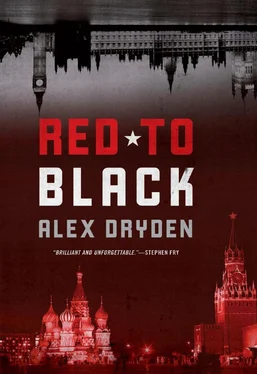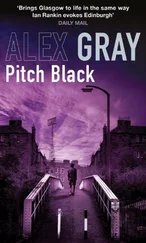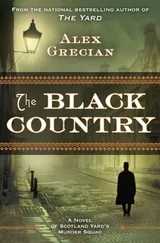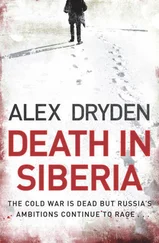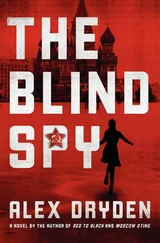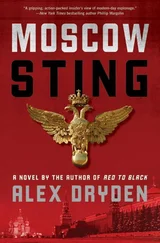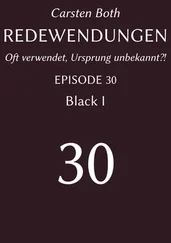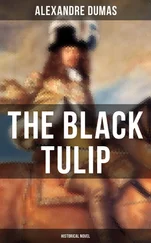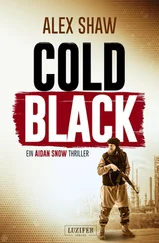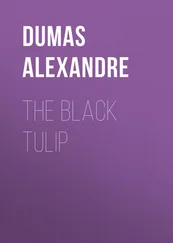‘That’s right.’ Finn grinned.
Finally, we came around a wide sweep of track near the top of a grassy mountain which brought us up to the wooden barn and the house we’d seen a while earlier. The track ended here. It was as remote a place as you could find in Western Europe.
Finn and I got out of the car. There was an old Toyota truck in front of the barn house and a small tractor parked on a grass slope that had animal dung on a rickety wagon behind it. From the open doors of the barn section of the building, we could hear the sound of a welding torch.
When we walked up to the entrance we saw a man with his back to us, wearing pale trousers, covered in grease and motor oil, and a blue shirt. He was crouched over a piece of red-painted metal on to which he was welding another, similarly shapeless piece of red metal. When the torch stopped and Finn shouted, the man turned, but his face was obscured by a plastic visor. When he lifted the visor I saw he was a man in his late fifties with a face so brown and lined that he looked like part of the old carvings on the barn’s wooden walls.
He stood still. Then he walked unhurriedly away from the workbench, seemingly unsurprised to have visitors-or maybe unsurprised by anything at all. He came towards the barn entrance, slotting the welding torch on to a metal trolley that held the gas bottle. When he stood in front of us, he slipped the visor off completely. I saw he had a big face; he was a big man, but completely quiet in himself.
‘Missed the road?’ he said, in thick, placeless German.
‘No. We came to see you,’ Finn said in English and I translated.
‘Oh yes?’
‘It’s a lonely spot up here,’ Finn said.
‘Maybe you want to rent it,’ the man answered in a mocking voice.
‘I want to know who rents it,’ Finn said. ‘We’re passing through to the lakes on the other side.’
This, I knew later, was the phrase which identified Finn to the farmer.
On hearing the words, the man stiffened and his air of quiet self-sufficiency deserted him. He walked past us, a little closer to Finn than was normal, like a big dog that wants its presence felt among potential rivals.
He said nothing and Finn and I followed him. He threw the visor on to a table by the door of the house and opened the door on a latch. He left it open and we followed behind him.
The light was dim inside- the place had been built against the winter- and we could barely see after the sunshine outside. When my eyes grew accustomed to the gloom, I saw on another wooden table which looked about a thousand years old, a rifle that was halfway through being cleaned, a hurricane lamp, likewise, and a few empty bottles of beer. The single large room was otherwise sparse. There was no kitchen, or any obvious room at all which could be described as such by an estate agent. There was no electricity. The place was bare but for half a dozen chairs in various states of repair, an old sofa on which a huge wolfhound was lying, and some artfully placed oil lamps.
‘You have the money?’ the man asked.
‘Yes.’
‘Bring it.’
Finn left the room and walked to the car. I saw him open the boot and bring out a black plastic briefcase which shone unnaturally in the dying rays of the sunset. As Finn walked back, the man disappeared through a door and by the time Finn was in the gloomy long room, the man was coming back through the door again carrying some beers in the crook of his arm. He snapped the tops off with a Swiss army knife and put them on the table. The beers were very cool, and came, perhaps, from a deep cellar.
Finn put the briefcase on the table and picked up one of the bottles. The man sat down, without asking us to join him. He opened the case and I could see from the angle at which I was standing, that it was full of bundles of cash. The man counted each row of bundles out in front of us and put them back in the case before counting the next row. When he’d finished, he snapped the lid of the case shut and picked up a beer and sat with his elbows on the table, sipping from the neck of the bottle.
‘Sit down,’ he said at last, and gave a low whistle. The wolfhound which had apparently been sleeping came immediately over to the table and sat on the floor beside him. Finn and I pulled up the chairs most likely to survive our weight and sat opposite him.
‘So. Who’s this Pablo?’ the man asked, and I translated for Finn. ‘How does he know of me?’
‘I don’t know how he knows you. He’s a cheat and a liar,’ Finn said. ‘That’s why the British employ him,’ he added.
‘The British?’
‘And others,’ Finn said. ‘Anyone who’ll pay him enough, in fact.’
‘How does he know about this place?’
‘I don’t know. He makes it his business to collect valuable information, that’s all I know.’
‘Maybe my father spoke to him once,’ the man said vaguely.
He pushed the briefcase to the centre of the table, as if he hadn’t yet decided whether to take the money or not, but Finn didn’t react. He just said, ‘I’ve told Pablo that if any accident happens to you, he’ll be dead in days.’
I looked at Finn in astonishment and saw that he was serious. It made me scared. But the man also saw he was serious and made the decision that Finn wanted.
‘I’ll show you something, then,’ he said.
He got up and walked through the door where he’d gone to get the beers. He was gone a long time, as if what he was bringing was buried very deep somewhere. Outside the sunset was now turning into a dull glow. I saw stars through the open door and a chill air was creeping into the house.
When he returned he was carrying an old leather knapsack of the kind one of his ancestors might have worn while sitting out on the mountain, guarding his flocks against wolves. He sat down and undid the one buckle that still worked and withdrew a waterproof plastic folder; from inside that he took out a buff A4 reinforced envelope for photographs.
He put five photographs on to the table, looked at them keenly, then pushed them across the table to Finn. He got up and fetched a bottle of some home-made mountain liqueur with what looked like a sprig of rosemary inside the bottle. It was dark now and he shut the door. He lit a fire already laid in a rough brick fireplace in the corner of the room.
Finn looked at the pictures. Three were faded and were older than the other two, which looked very recent; different paper, sharp and with a glossy look to them as if they’d recently been developed.
The farmer poured three shots of the liqueur and raised his glass.
‘To what are we drinking?’ he said.
Finn and I raised our glasses.
‘Let’s drink to your father,’ Finn said.
The farmer levelled his eyes at Finn.
‘It’s a good toast,’ he said finally, and we drank. Then the man began to speak.
‘In the spring of 1989,’ he began, ‘my father was working this farm. I wasn’t here back then. I was working in Switzerland. An intermediary, who my father later discovered was acting for one of the men in the pictures, came to him and requested that he rent this house for a weekend in that June. In return for the rent of the farmhouse here, he offered my father a hundred thousand dollars and also a week in the Canary Islands for him and his wife, which they were to take over the period of the weekend when the farmhouse was rented. My own mother died many years ago and this was his second wife,’ the man explained.
‘My father accepted the deal and the money was paid into an account set up for him in Vaduz. The two of them were given air tickets and a room was booked at the most expensive hotel on an island called Hierra. Very remote, even by the standards there. But my father didn’t go. Instead, he called me. I was working at the time on a dairy farm belonging to a distant relative over the border in Switzerland. I hadn’t been up here for many years at the time. I didn’t like his wife.
Читать дальше
